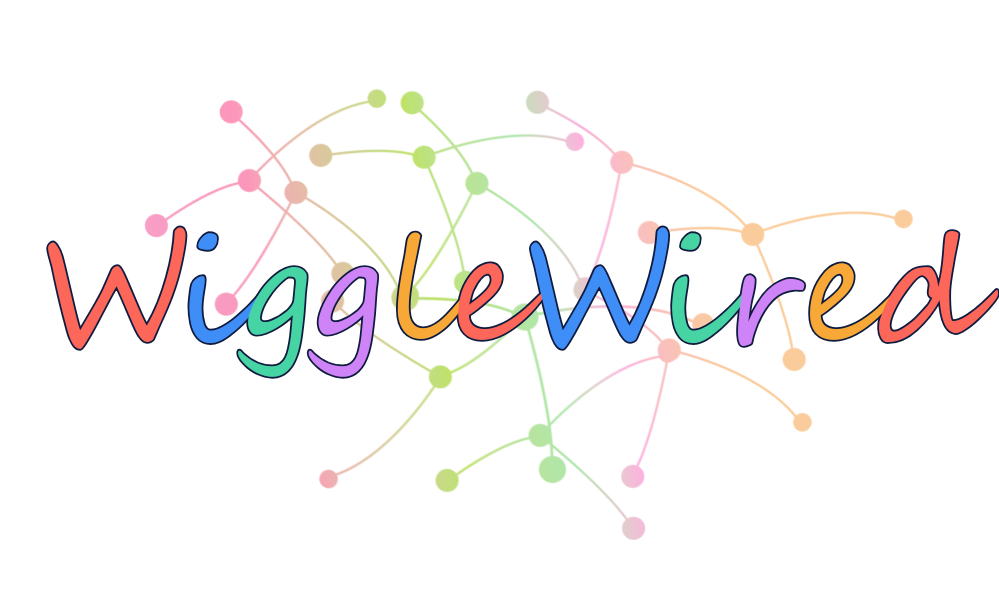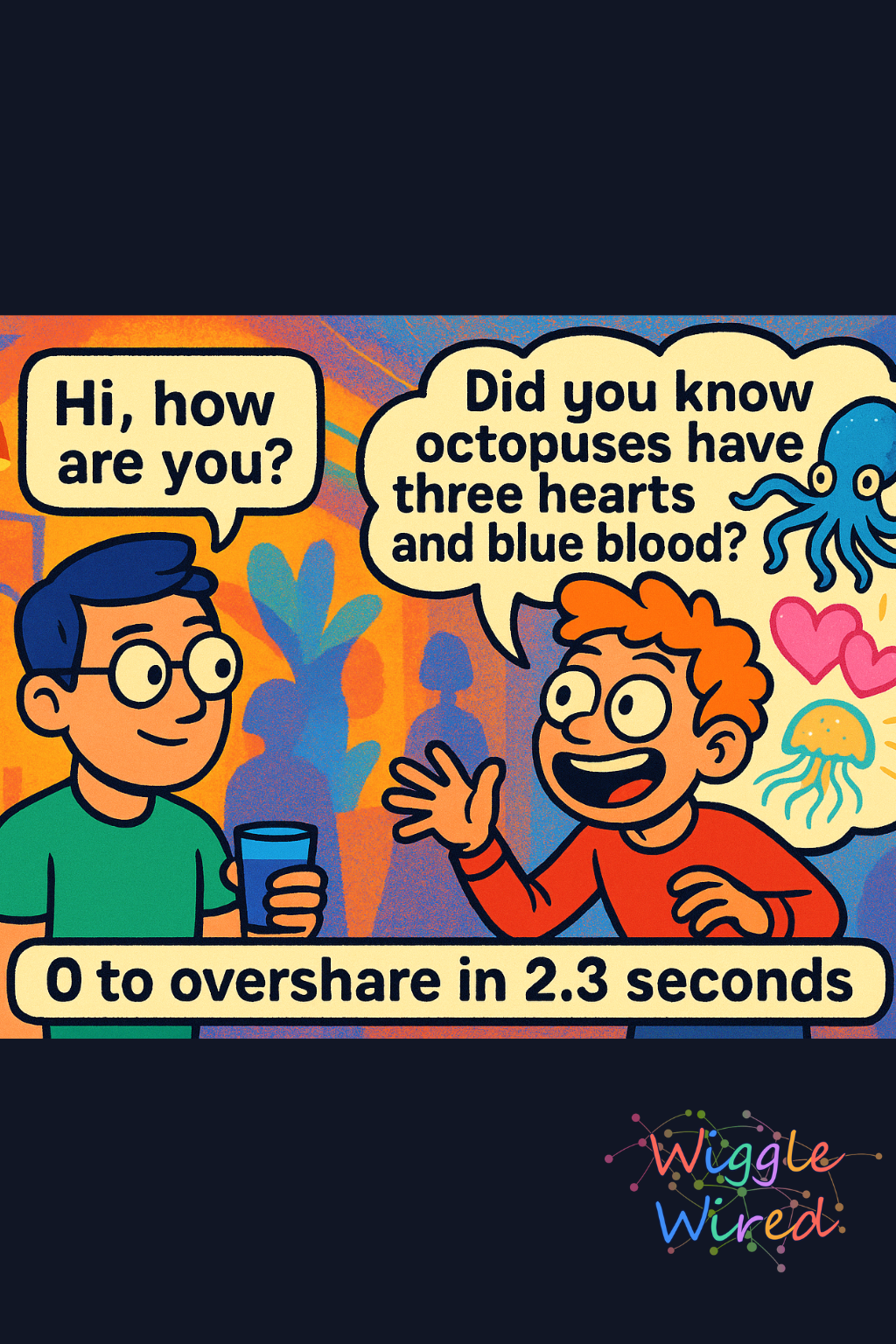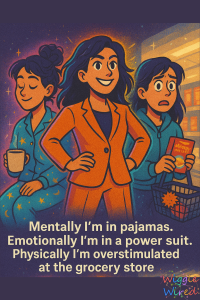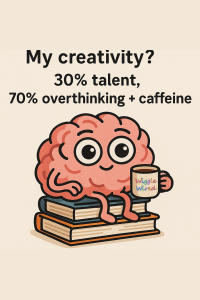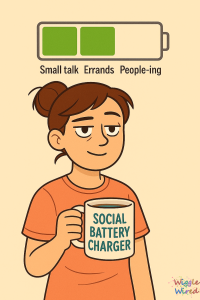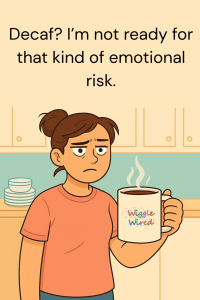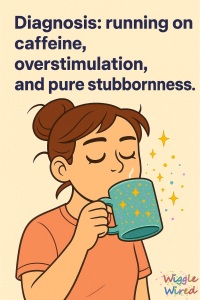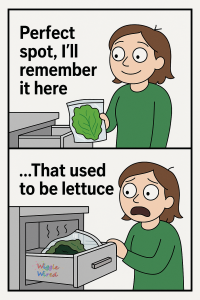Neurodivergent Small Talk
Some people start conversations with the weather.
We start with:
“Did you know octopuses have three hearts and blue blood?”
It’s not that we can’t do “normal” small talk, it’s that our brains get excited about the things we love, the things we’ve just learned, or the things that fascinate us for no logical reason. And before we know it, we’re halfway through a full mini-lecture on the evolutionary purpose of an octopus’s copper-based blood and bioluminescent camouflage.
Why We Do It
For many neurodivergent people, this isn’t random. It’s how we connect.
Small talk can feel surface-level, like tapping on glass instead of opening the door. But sharing a passion, even if it’s “niche” or unexpected, feels like inviting someone into our world.
We’re not just talking about octopuses. We’re saying:
- “This is something I find fascinating.”
- “I want to share this spark with you.”
- “I hope you’ll share something about your world too.”
It’s a form of intimacy – one that doesn’t require eye contact, scripted questions, or pretending to be fascinated by the weather forecast.
The Misunderstanding
Sometimes, neurodivergent small talk gets mislabeled as “oversharing” or “monologuing.” And sure, we can lose track of time when we’re in our element. But for us, a conversation filled with real curiosity and shared information is more comfortable than a series of polite, empty phrases.
We thrive when conversations go deep, fast. Not because we’re trying to dominate the space but because our brains are wired to seek meaning, not filler.
How to Meet Us There
If someone in your life tends to launch into a passionate TED Talk in response to “How’s it going?”, here’s how to keep the connection alive:
- Ask a follow-up question, even if you’re not familiar with the topic.
- Share something you find fascinating, even if it feels random.
- Don’t be afraid to let the conversation wander. That’s where the good stuff happens.
You’re Not Alone
If you’ve ever walked away from a party realizing you spent an hour talking about the history of paperclips, the behavior of crows, or why the moon looks bigger near the horizon – you’re in good company here.
We see you, passionate conversationalists, fact-sharers, and accidental educators. Your way of connecting is valid, joyful, and deeply human.
